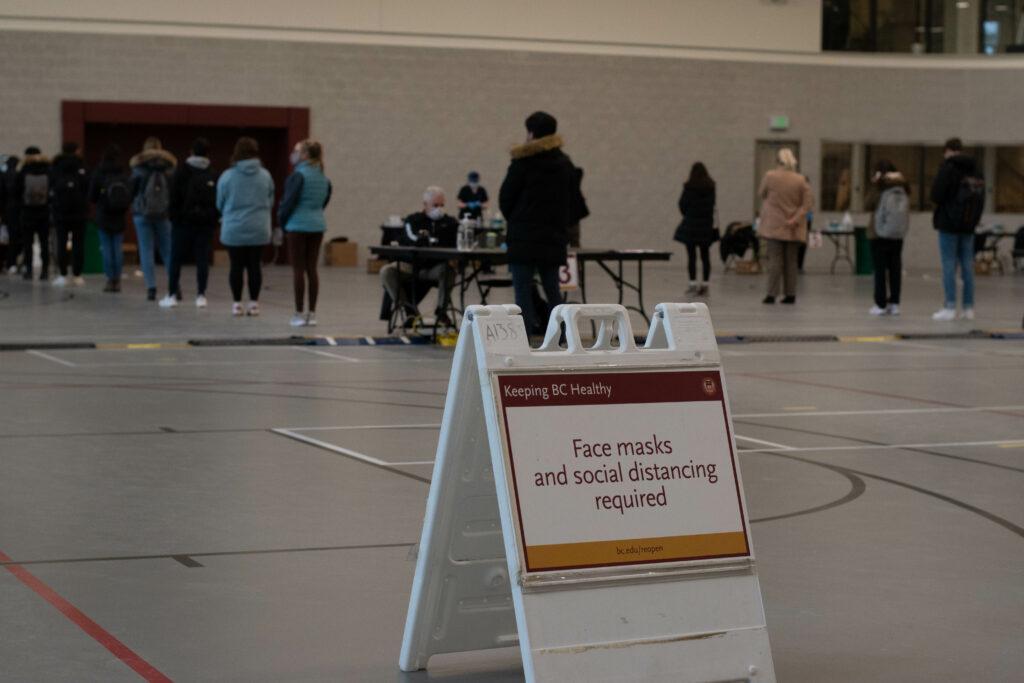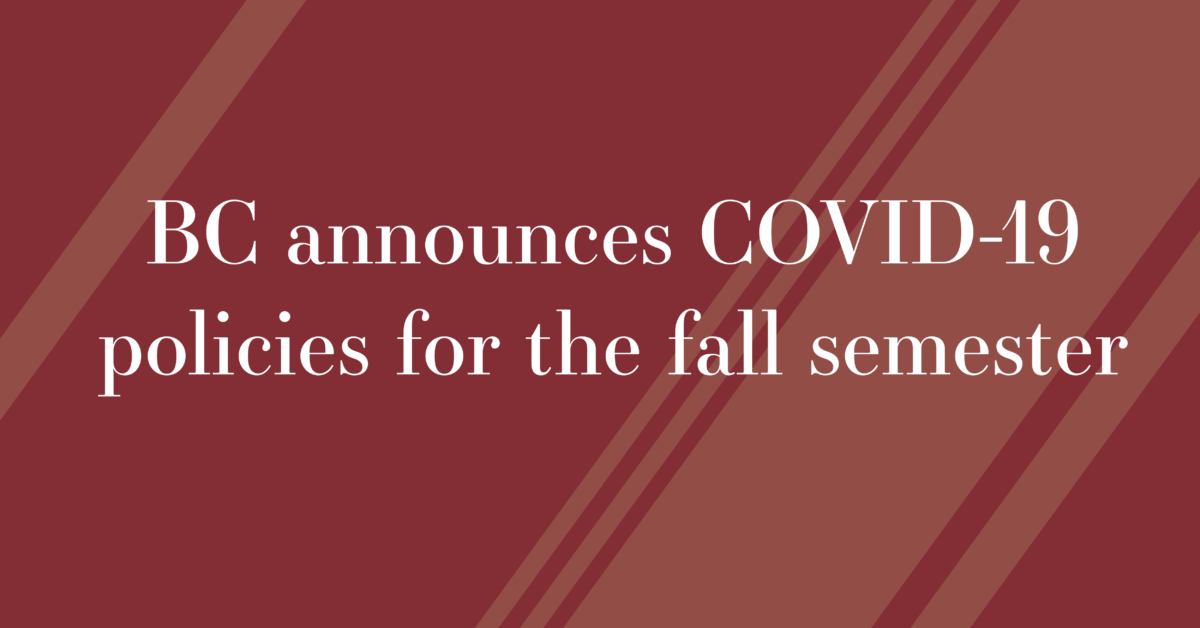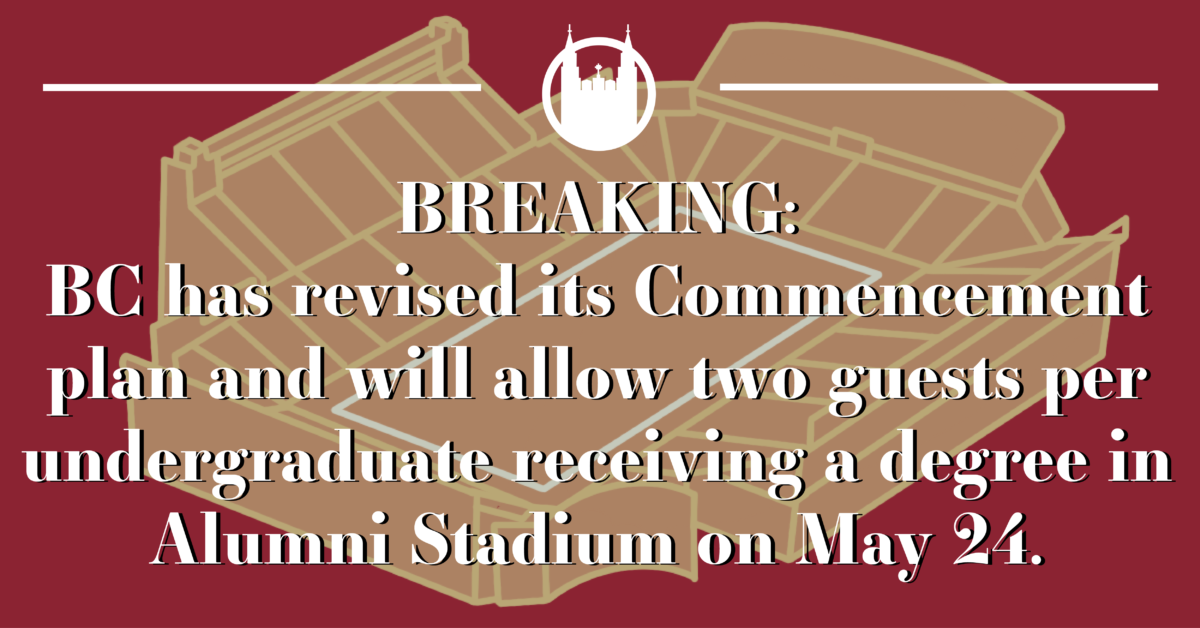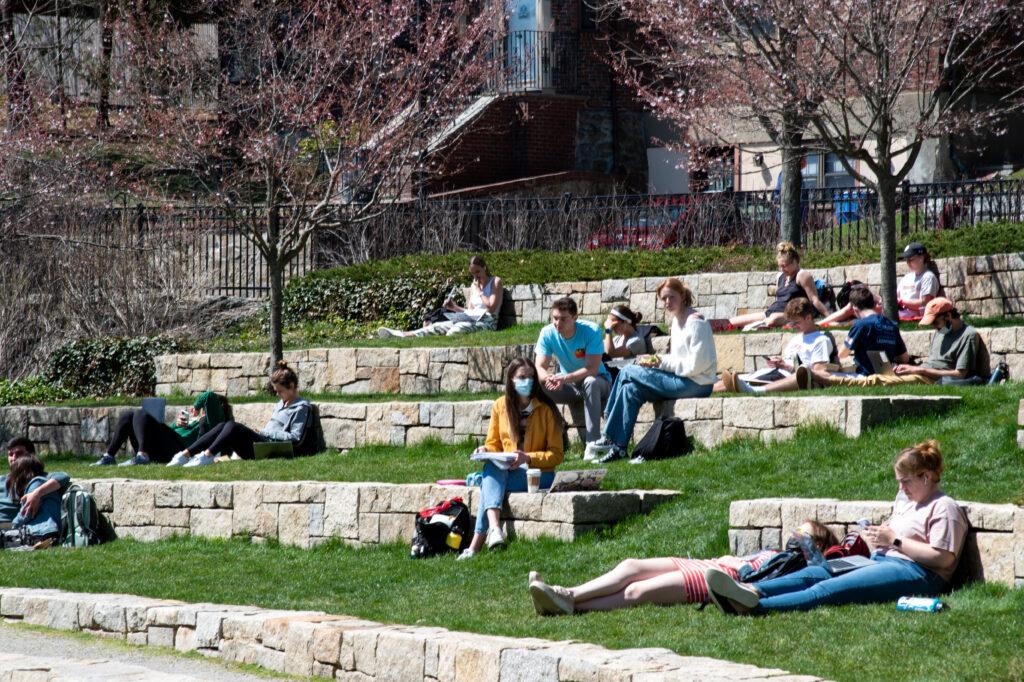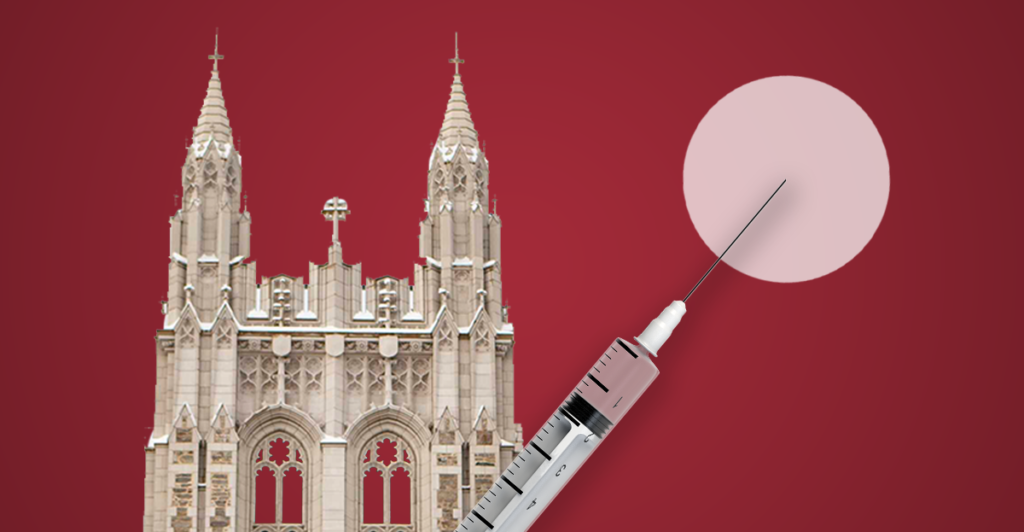“Right now, I don’t believe it will be necessary as long as the numbers nationally and on campus keep heading in the right direction,” he said.
Since Feb. 1, 205 undergraduates have tested positive for COVID-19, according to the University’s COVID-19 dashboard. BC also reported a record high of 139 students in isolation on Feb. 17, eclipsing a first semester high of 87 on Nov. 27.
Many students are currently in quarantine after being in close contact with students who tested positive, though BC does not release the number of students in quarantine.
Rumors of a University-wide quarantine circulated after the rise in cases and isolations. A fake email attributed to Executive Vice President and Acting Vice President for Student Affairs Michael Lochhead and Provost and Dean of Faculties David Quigley, which falsely claimed that the University would go into a two-week quarantine starting last Friday, circulated on social media and in group chats last Thursday.
Lochhead said in an email sent to students on Thursday that the University would not enter into a two week lockdown on Friday.
“Contrary to rumors and an image of a fraudulent email that has been shared on social media, Boston College is not going into lockdown on Friday,” he wrote.
Johnson, who led the University’s efforts to create a state-certified laboratory to test COVID-19 samples, said that there is likely not a certain threshold of cases that would push BC into a lockdown.
A spike, for example, could lead to a sharp increase in the percentage of positive cases on campus, he said, but that likely wouldn’t lead to a shutdown unless the numbers stayed that high or continued to rise.
“I know there’s not just some magic number,” Johnson said.
In the pre-semester weeks of the fall semester, when the University tested all of its undergraduates for COVID-19 upon their arrival to campus, only nine students tested positive. By comparison, 76 students tested positive during the same pre-semester period in the spring semester, according to BC’s COVID-19 dashboard.
Johnson attributed recent trends in cases to a higher baseline reported during the pre-semester weeks. He also said Super Bowl gatherings likely played a role.
“I think one thing is, the semester only started a couple weeks ago,” Johnson said. “We started at a higher baseline than August … So probably we’re starting with more virus on campus this semester, and then we had Super Bowl Sunday. I’m pretty fairly confident that some of what we’ve seen in the past week is probably fallout from Super Bowl Sunday.”
Generally, Johnson said, the virus is not spreading in academic settings, but rather in unmasked social gatherings, which violate the Eagles Care Pledge.
“As far as we can tell it hasn’t happened in classrooms or locker rooms or offices … it just seems like most of the time it’s because of a party or a gathering where somebody … is shedding a lot of virus,” Johnson said.
Johnson also noted that although some students are violating social gathering restrictions, it is imperative to recognize and appreciate students that are following the rules.
Philip Landrigan, a biology professor, praised the steps the University has taken to address the recent outbreak in an email to The Heights. He said he expects cases to decrease in the next few weeks as long as BC’s testing, isolating, contact tracing, and disciplinary strategies all continue.
“BC is taking all of the right steps: frequent testing, isolation, contact tracing, and disciplinary action as needed,” he said. “I expect that these actions will bend the curve downward within the next several weeks.”
The University has administered 59,659 community tests since the start of the spring semester, and conducted 140,535 tests during the fall semester, according to the University’s COVID-19 dashboard.
BC has been administering an average of 1,754.68 community tests per day this semester, compared to a rate of 1,097.93 in the fall.
BC has reported 281 undergraduate cases at the end of the third week of the spring semester, compared to 125 cases at the end of the third week of the fall semester.
Johnson said that the University is testing as many students as is necessary.
“As a matter of fact, in the last week or two we’ve probably done more tests in one week than we did, say, during one week back in November, but we’re not catching more positives,” he said in an email to The Heights. “It tells us that we’re probably doing as much testing as is necessary.”
Johnson also said that there is more to the University’s COVID-19 strategy than just testing. Contact tracing and the rapidity of testing are also important, he said.
“Testing alone isn’t what works,” Johnson said. “It’s the rapidity of the testing, the contact tracing. Testing is not a cure-all, right? It’s not a panacea to prevent the virus. What testing … allows you to do is to identify people and try to stop the virus from spreading.”
Johnson said that the longer the pandemic drags on and cases persist at the University, the more likely it becomes that an undergraduate student is hospitalized or dies from the virus.
“Keep in mind the longer this drags on, the more likely it is that an undergraduate will wind up hospitalized or dying,” he said. “So far, BC’s been lucky.”
Johnson said that efforts among students to uphold social distancing requirements may accelerate the decline of the virus at the University.
“So it’s actually a theoretical fact that if everybody would just stand still for like two weeks, the virus would be gone all over the world,” Johnson said. “Let’s keep remembering that we’re kind of in a battle to end this together, and the more that people comply, the faster it’s going to go away.”
Landrigan agreed that students need to continue wearing masks and social distancing.
“I sympathize that these are very tough times and that they have been going on for far too long,” Landrigan wrote. “But students have to think beyond themselves, truly be men and women for others, and be responsible members of the community.”
The progress made with vaccine distribution during the first few weeks of President Joe Biden’s administration offers hope to BC students and community members, Landrigan said.
“The vaccine is coming,” Landrigan said. “The Biden administration is doing everything in their power to overcome nine months of inaction by their predecessors and to do the right thing. Be patient. Be strong. Be kind.”
Featured Image by Vikrum Singh / Heights Editor

